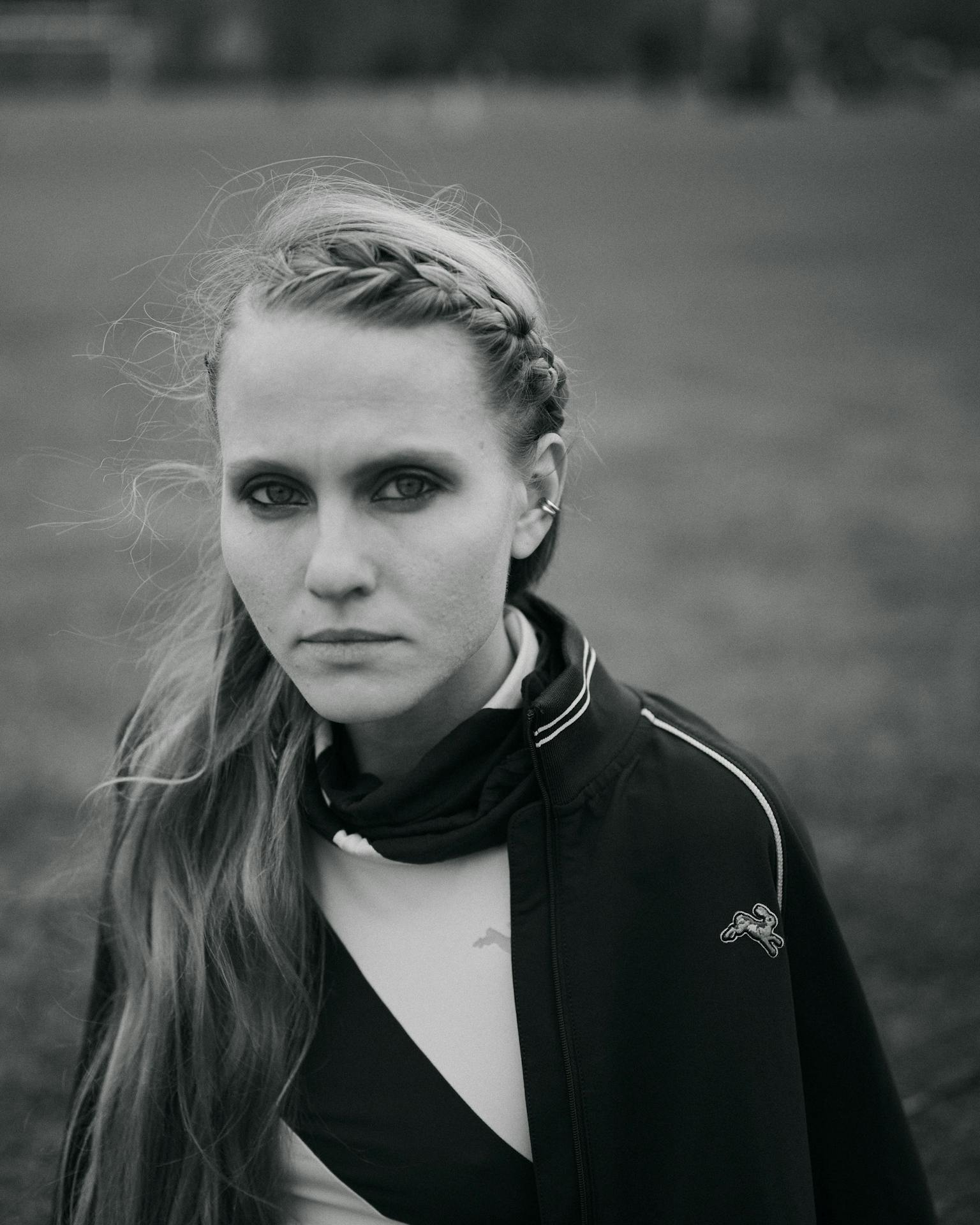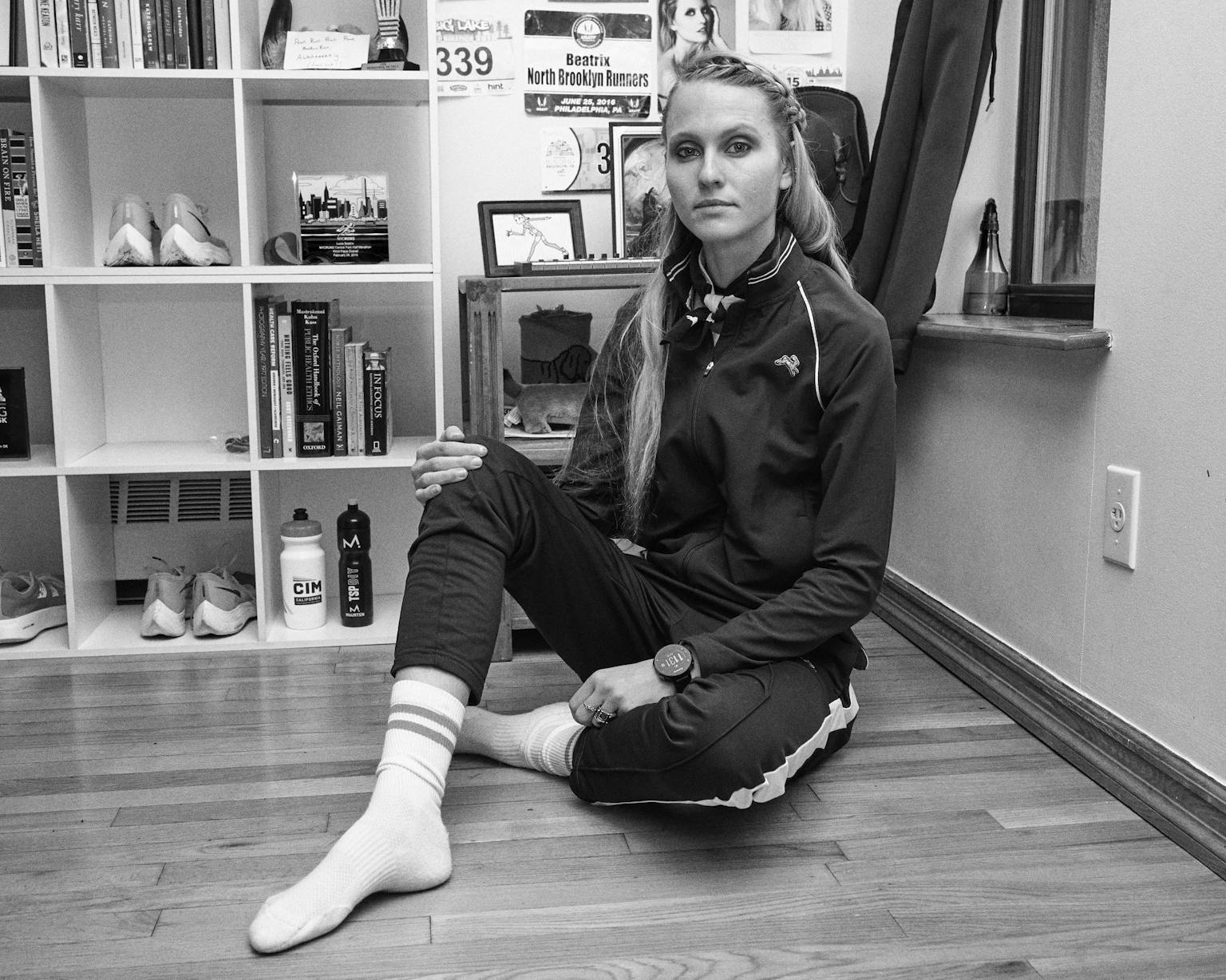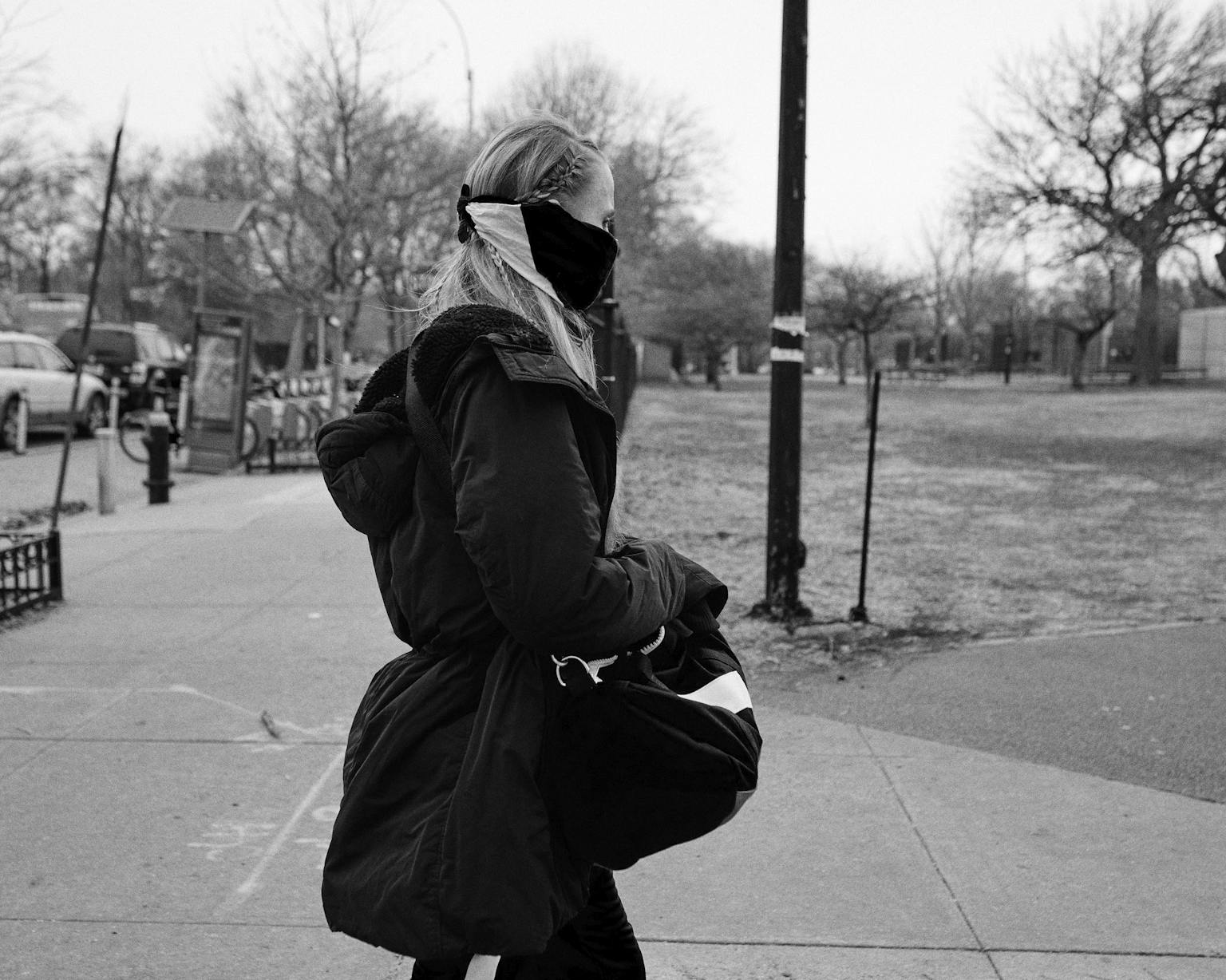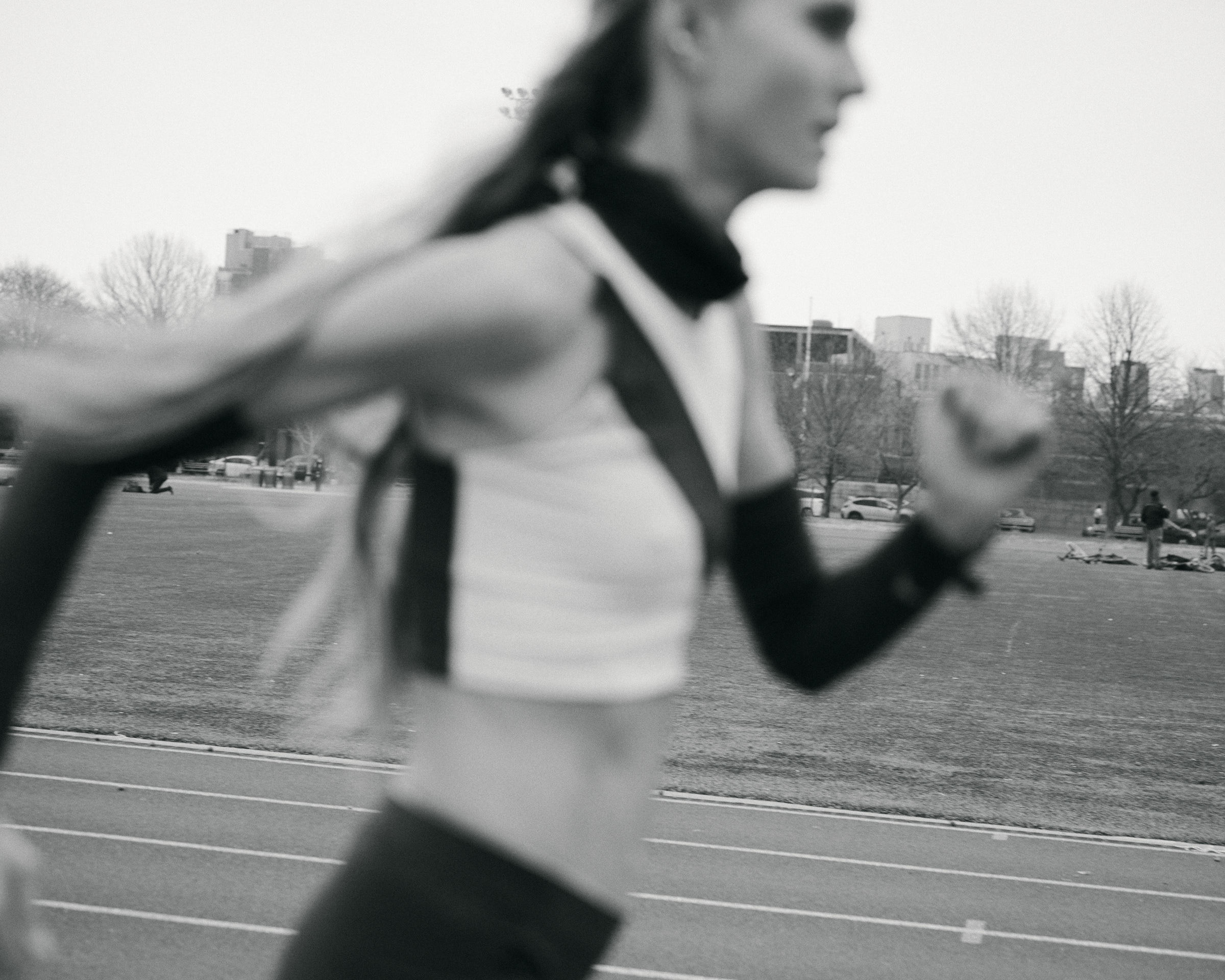

Sober in
the City
Words by Lucie Beatrix
Photography by Ben Rayner
There were a lot of hurdles to overcome in 2020. But for me, as hard as it was to get through the depths of the pandemic, the biggest challenge was just trying to stay sober.
Today, I’m roughly 5000 miles away from the person I was when I hit my rock bottom. Or at least, that’s how far I’ve run since I made the decision to quit drinking. That pivotal moment - deciding enough was enough - was my starting point. Back then, I had no idea just how much my life, and my running, would change once I got sober.
…
Getting sober was terrifying. Suddenly, I had to face all the demons I had been trying to hide from. I had to go after my sobriety much like how I approach my running goals: determined, unwavering, and steadfast. I realized that I hadn’t gone a day without alcohol for a really, really long time. What’s worse was that alcohol had been the first thing to enter my system (after coffee) for several years; I’d been running on empty for a very long time. I was hurting myself physically, and I could feel how my drinking was corroding my spirit.
In those early days of getting sober, I began to wake up to painful realities. The sudden and tragic death of my father, the ending of my marriage, and all the debauched behavior I had been involved in. While I was caught up chasing the night, I wasn’t confronting challenges in my everyday life. I was just existing in a series of doings and undoings.
The pattern was like this: run hard, drink hard, repeat. Day after day, night after night.

But, there was no running from myself anymore as a sober person. As agonizing as it was, I knew that quitting cold turkey was what I had to do in order to distance myself from the person, or monster, I had become. I confronted grief, guilt, and shame. But nothing was as bad as remaining trapped in the cycle of destructive drinking.
To me, abstinence from alcohol represents getting clean from many of the detrimental, self-destructive behaviors that I had accumulated over the years. I combined overexertion and underfueling, substituting nutrition for alcohol. I also sought out incredibly demoralizing and toxic relationships, which left my soul hungry for true affection.
Alcohol fueled this miserable sort of life. I felt like I was fighting fire with fire. While drinking was a means to escape, what I did while I was drinking only ever made me want to run away from myself more.
When I recognized I had a problem, one that transcended any other problem in my life, I acted on my desire to change. The very first day in sobriety, I started going to support group meetings. There, I felt like I was free from this gargantuan weight I had been carrying around.
Running Dry
During the shutdown, I set out to run until I couldn’t run anymore. Spontaneous solo marathons around the vacant city occupied my time. I did anything to keep moving, even if I didn’t know exactly where I was going.
These solo runs in isolation grew longer and longer. I listened to podcasts about recovery and started thinking about who I wanted to be when I could re-enter the world when the pandemic lifted. I didn’t want to succumb to the external pressures of unemployment and directionlessness that I faced, but rather I worked on who I was underneath all of that. I really got in touch with who sober me was.
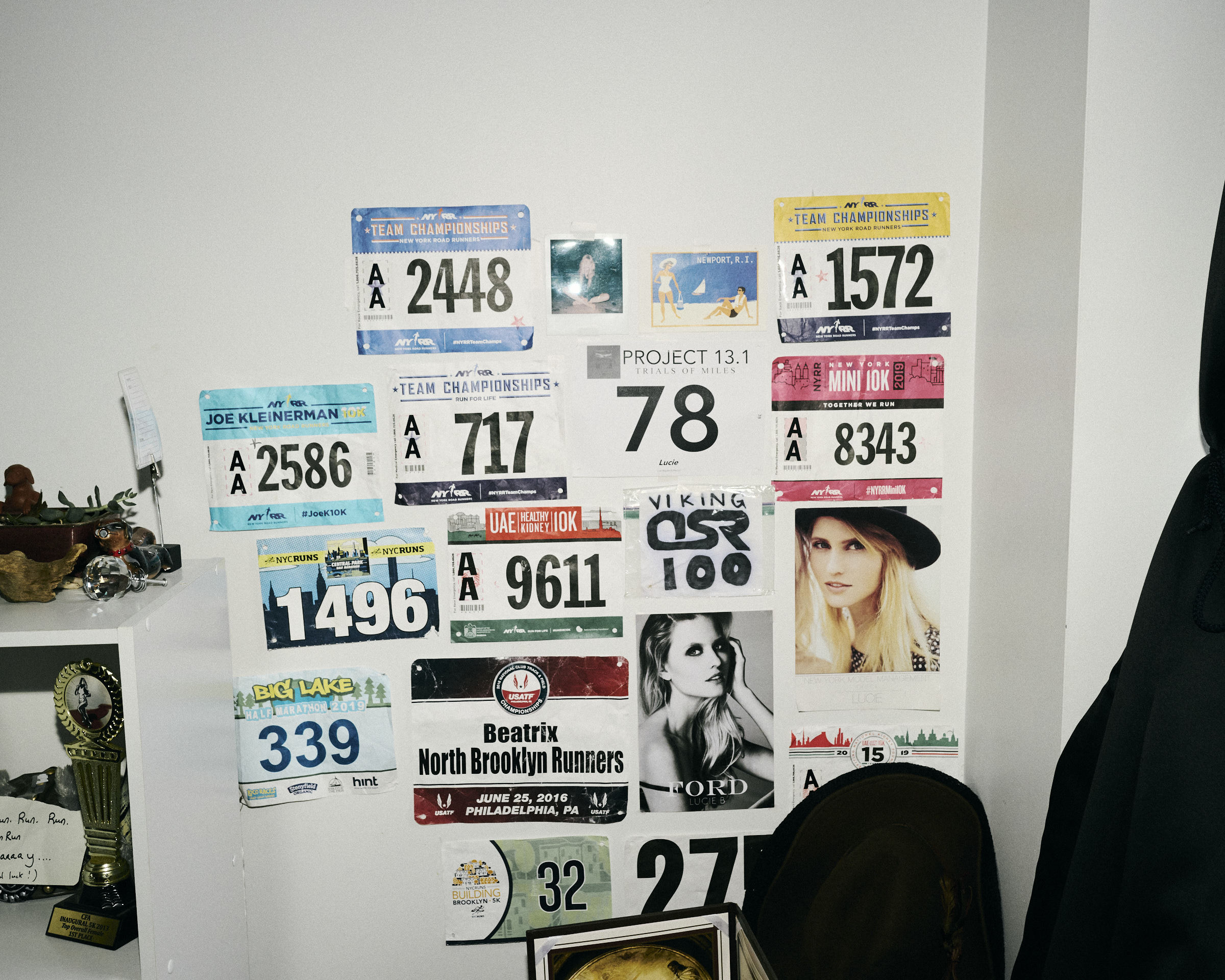
Milestone
To celebrate my one year sober birthday, I set out to run my longest long run ever: 76 miles in a single day. I ran this all on the track by my apartment in Brooklyn. Over the course of 304 laps, I pondered what my sobriety means to me.
This accomplishment filled me with more hope and optimism for my future than ever before. I had done something big, running that far, and it was all because I had given myself the gift of not drinking for a whole year.
Despite how hard it was, running that far represented my potential: I can do hard things.
Back before I ever got sober, running meant something very different in my life: It was a way to undo the night before, or make up for all the drinking I had done. A long night was almost always followed by a long run. None of those runs felt rewarding, but rather like I was just getting rid of the damage I was doing to myself. I could run and run, but while I was still drinking I was getting nowhere at all.
Running 76 miles in a day symbolizes the way I feel about running now: I run towards a new me, or the me that I aspire to be. I finished my sober anniversary run feeling proud of my effort and with a renewed commitment to this path.
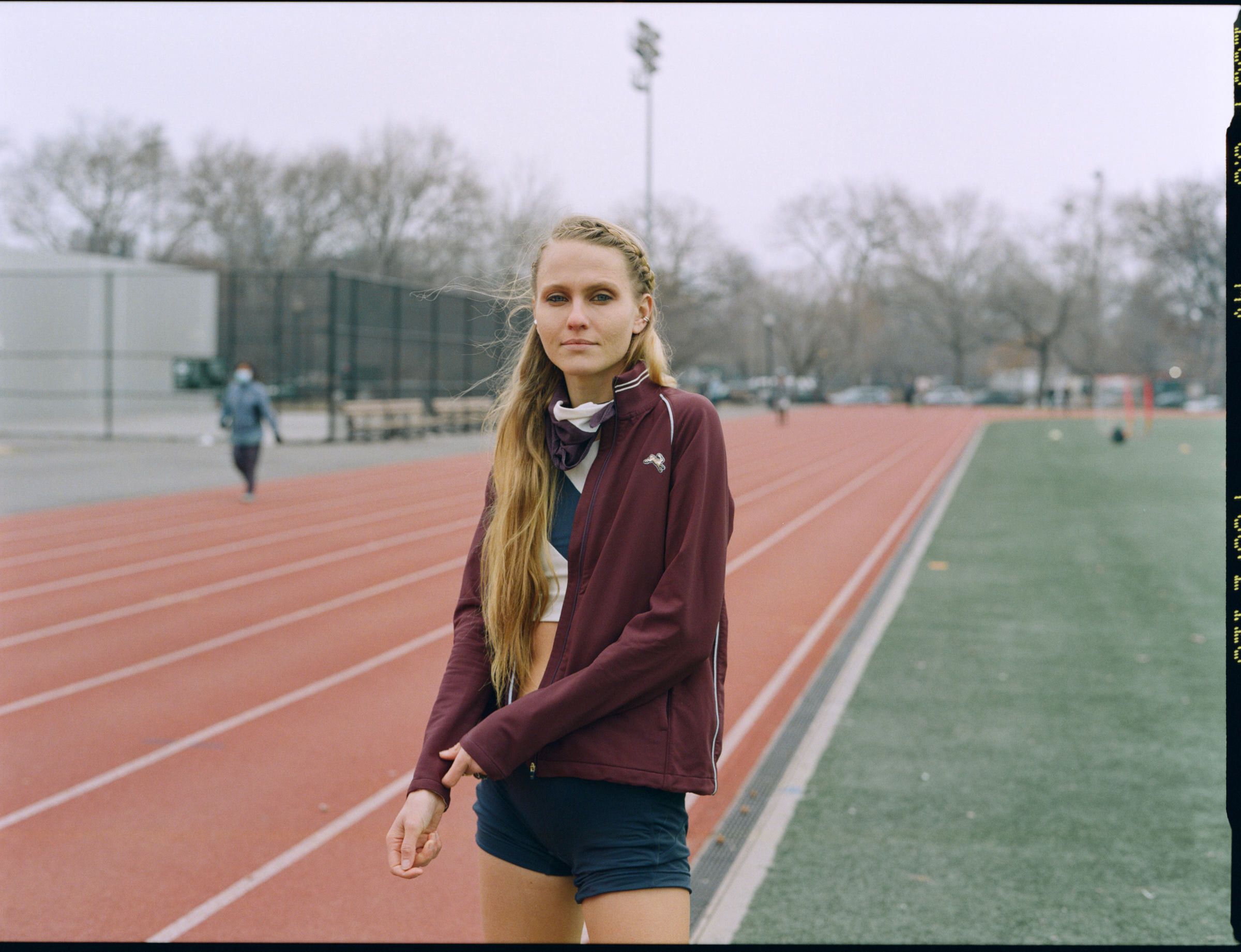
Time
This New Years, I passed my 600 day mark of time spent sober. While most people were nursing hangovers, I was rejoicing in the commitment I have made to myself. When I think about the state of the world this past year, staying sober was not easy - but I can’t even imagine trying to function during the pandemic if I had been under the influence.
Recovery has many meanings in my life. It is the practice of restoring my physical self through the avoidance of alcohol. But it’s also a form of self care that trickles into everything that I do.
In my time sober, or 14,000+ hours away from who I was my darkest hour, I’ve run my farthest and fastest times. Navigating the world with that much unclouded time has helped me see my own running goals better.
Every action I make - whether it’s going fast or slow - is intentional: I move deliberately.
I am going to keep checking off all the milestones in my recovery the same way I go after big training blocks. My running and my sobriety go hand in hand, and feed off of one another. I don’t know what the next year will bring, but I know that I am going to chase after it at full speed.
I think about my rock bottom, especially while I’m running, all the time. But I don’t feel the same sense of regret or disgust that I used to. Instead, I use my hardship as fuel to put more and more miles between then and now. Creating distance there gives me an incredible sense of peace and puts my mind at ease.
Moving forward, my sobriety and my running will stay tethered to one another. One step in front of the other, one day at a time.
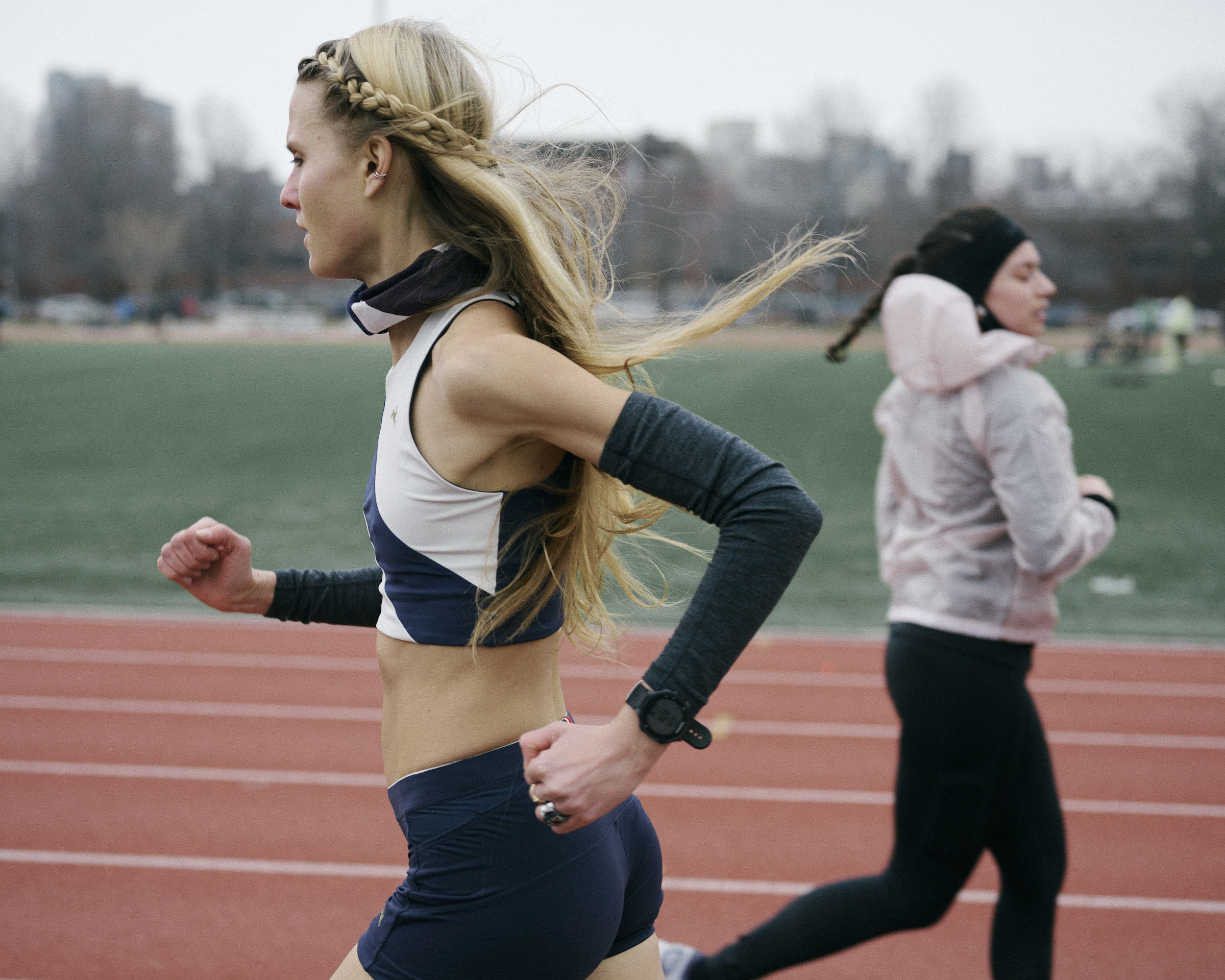
Sober Runners
As Dry January comes to an end, we spoke to a selection of sober athletes on their journey away from alcohol.
Logan Yu
It started as a cliché dry January in 2020 and then once I got to the end of the month, I thought, “Why stop here. I bet I could finish the year.”
I never drank a lot and I never really enjoyed it. The most challenging part was having to explain to friends that I just wasn’t drinking and feeling a loss of camaraderie.
But since I’ve stopped, I’ve felt consistently focused, stronger, and able to enjoy running any time or day.
Dakota Trick
Everytime I picked up a bottle, I knew I would be out of running for the next 2 to 3 days because I would get migraines that were so crushing and debilitating. I would lie on the couch of my apartment looking outside with an ice pack to my head thinking of how nice it is and what a perfect day it is for running. Even after my 3 day recovery period, I would go to run and not have the energy so running was sadly non-existent whenever I decided to indulge.
As a sober runner living in NYC I have to say it does bring some challenges such as meeting up with friends when they want to grab drinks and there I am with my seltzer. When their drinks arrive all I can think about is the smell and how badly I want a drink. However, I never budge because there is so much going for me now.
By getting sober, I have gained structure in my life, I am back in school studying to become a Pediatric Neurosurgeon, and I have such a great group of friends and community backing me, there is nothing more rewarding than that.
Evan Bochner
Shortly after I got sober I found running again. It was like reuniting with an old friend I hadn’t seen in a long time. Running was a safe and healthy outlet for me to focus my energy. Running gave me confidence to continue my recovery.
Running and recovery have many parallels, and each one helps the other. I challenged myself to run 1,000 miles in 2020, which is more than ever done in a year. I was scared at committing to that challenge, but knowing how much I’ve accomplished in sobriety gave me the confidence to dive headfirst into the challenge.
You have to keep working on yourself if you hope to stay sober, and the same goes for running. One day at a time.
